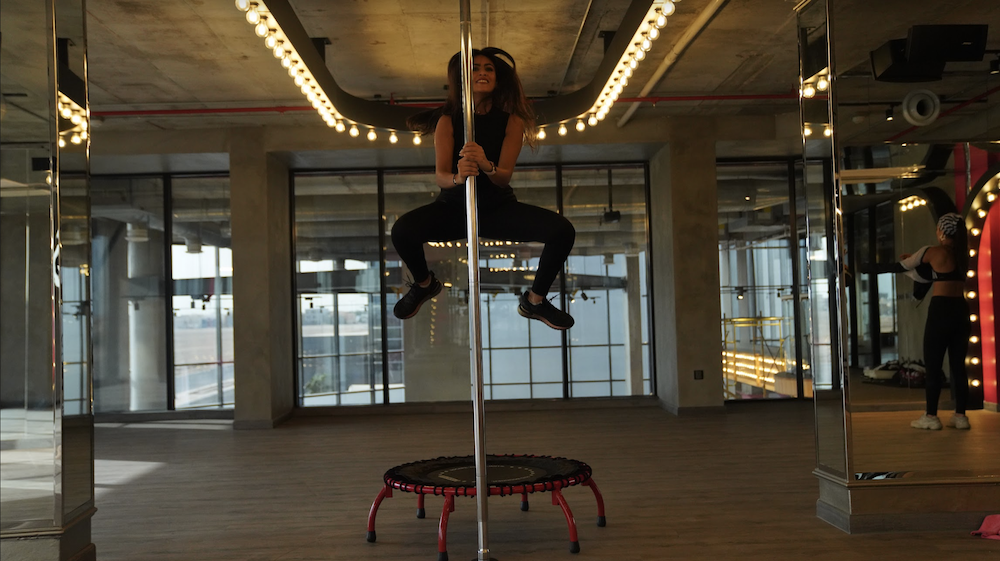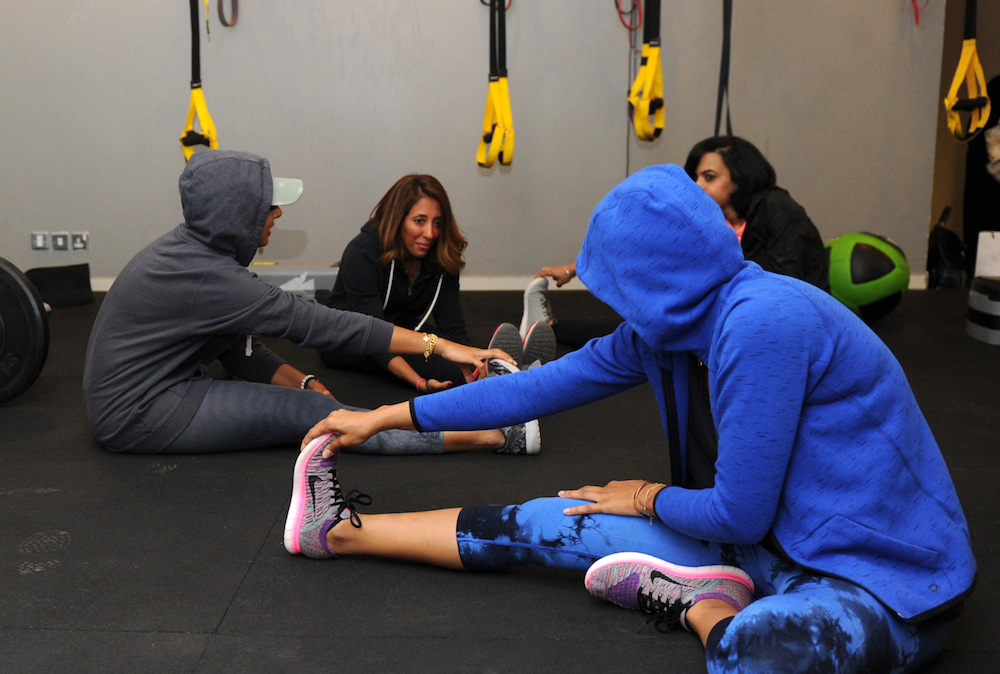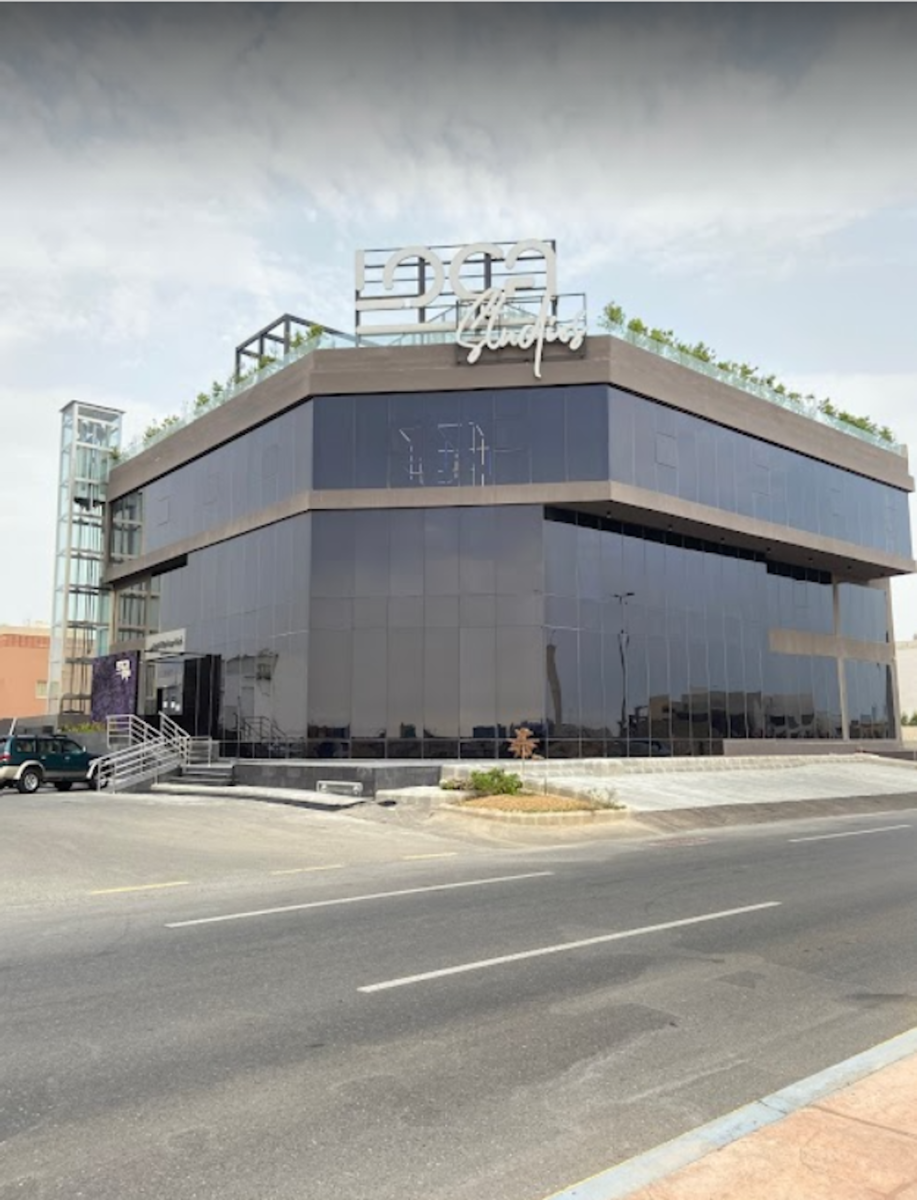DUBAI: Health professionals have long trumpeted the benefits of regular exercise to promote physical well-being, longevity, and mental wellness, while also easing the burden of chronic conditions on the health sector.
Now, empowered by Vision 2030, Saudi Arabia’s economic reform agenda, young Saudis are readily taking advantage of opportunities and state support to launch their own business ventures in the burgeoning fitness industry.
Many of these young people bring entirely fresh approaches to the concept of wellness — with a greater emphasis on mental health, socializing, and creative pursuits, rather than the solitary and often hypermasculine experience of the traditional gym sector.
Sarah Al-Turkistani, who was born and raised in the town of Taif in the Kingdom’s southwestern Makkah province, saw a yawning gap in the market for female fitness enthusiasts eager to get in shape but put off by the limited gym facilities on offer.
A year since its launch in the coastal city of Jeddah, her business, Loca Studios, has offered women a completely different fitness experience, where the grind of a regular workout becomes a social activity, involving music, dance, multi-sensory therapies, and even the chance to drink coffee with new friends.

Sarah Al-Turkistani, who was born and raised in the town of Taif in the Kingdom’s southwestern Makkah province, saw a yawning gap in the market for female fitness enthusiasts. (Supplied)
Al-Turkistani told Arab News: “Through exercise, people can actually heal their body from physical and emotional traumas.”
As a graduate of the health profession, having studied at the College of Clinical Pharmacy in Jeddah, she takes a whole-body approach to fitness, acknowledging not only the physical benefits of weight loss and muscle growth, but also the mental advantages of exercise.
What she also drew from her studies was an understanding of the limitations of pharmaceutical drugs in treating maladies. “It usually helps you in one area but damages your body in another,” she said.
Instead, she has become an ardent advocate of holistic lifestyle choices to improve and maintain overall health.
Following her studies, Al-Turkistani began a stint in pharmaceutical chemical procurement at the King Abdullah University of Science and Technology, but soon moved to Nahdi Pharmacy, where she established the firm’s marketing department. It was here she honed her business acumen and delved deeper into the realm of holistic health.
During her time with Nahdi Pharmacy she became involved in a joint project with the Saudi Ministry of Health and the Joslin Diabetes Center in the US to publish a study for the American Diabetes Association on the power of wellness and healthy eating in treating diabetic patients.
“My mission in life is helping people with solutions other than medication. I was really inspired by the results of the study, and this got me deeper into wellness,” Al-Turkistani added.

The venture is certainly experimental. It will soon host live jazz musicians to perform around the studio, while customers take part in art classes, workouts, and drink coffee. (Supplied)
With World Diabetes Day (Nov. 14) approaching, health professionals globally are using the occasion to encourage the public to eat a more balanced diet and to take up some form of moderate daily exercise to shed excess pounds.
While working with Nahdi Pharmacy, Al-Turkistani became a certified diabetes educator, a period of study which drew her into the sports fitness sector. But the experience that really brought out her inner entrepreneur was her own fitness journey.
After failed attempts at joining a gym to lose weight following her pregnancy, Al-Turkistani signed up for a home Zumba class hosted by her friend and future business partner. “I immediately loved it,” she said.
“I really loved dancing and losing weight without even feeling it. I was having so much fun. My business mind wondered why there was no such thing (on a commercial scale) in Saudi Arabia because it actually changed my life. That’s when it clicked.”
And so, as the Kingdom began to relax its guardianship laws and started encouraging women and young people to enter the workplace and launch their own businesses, Al-Turkistani established Loca Studios in a four-storey, 3,000-square-meter building in the heart of Jeddah.
Although the space was much larger than she had anticipated, a brainstorming session with her silent partner hatched an even more ambitious plan, incorporating fitness, art, and music into a holistic community.
The venture is certainly experimental. It will soon host live jazz musicians to perform around the studio, while customers take part in art classes, workouts, and drink coffee.
“Music always makes for a fun workout. We had a couple of events where my sister played oud in the background of a yoga class, and another that activates people’s senses by coordinating a room’s colors to the music. You’re activating your visual senses thanks to the moving colors, so people don’t feel the struggle or pain of actually working out,” she added.

Young Saudis are readily taking advantage of opportunities and state support to launch their own business ventures in the burgeoning fitness industry. (AFP/File Photo)
The multi-sensory experience is further enhanced by the fragrance in each room, utterly transforming the gym aesthetic and the appeal of working out. “It has an amazing effect on people,” Al-Turkistani said.
“People buy gym memberships, but they don’t go. It’s very good for business but not good for the guests. In our case, people actually pay for the membership, and the faces that I see, I see every day — they don’t quit.”
As Loca Studios celebrated its first anniversary, Al-Turkistani revealed she had plans to open a second branch in Riyadh before expanding throughout the Kingdom.
With 2,000 people currently subscribed on her website, and around 300 customers joining the studio in September alone, Al-Turkistani noted that she was proud of the progressive transformations taking place in Saudi Arabia.
By revolutionizing the gym experience and expanding her business, she hoped to make a difference in a small but important way: 36 percent of Saudi women are classified as obese, resulting in chronic health conditions that place a strain on the country’s medical infrastructure.
“Our government is finally looking at this seriously because having so many people sick in hospitals affects the economy.
“They thought about it from a human perspective, as well, and I’m really happy about it and the Vision 2030. It made me even stronger as a businesswoman knowing that whatever I’m going to do, I’m going to get the right support from the government and the whole country,” she added.

As Loca Studios celebrated its first anniversary, Al-Turkistani revealed she had plans to open a second branch in Riyadh. (Supplied)
Many young Saudi entrepreneurs want to make an impact on their community — especially in ways that improve quality of life through physical and mental well-being — efforts that are at the very heart of the Kingdom’s transformation.
Al-Turkistani said: “We now find a lot of Saudi trainers in the fitness industry and many of them are self-taught. They’re getting certified, which is amazing, and there’s a lot taking place in society now.”
Latching onto the well-being trend, Al-Turkistani plans to open a Loca Academy to train others eager to enter the fitness industry.
“I am certified to deliver a training program used by the US Army on how to de-stress. There are only five Saudis trained in this so far, but I believe it’s going to change people’s lives.
“The happiness that comes from the outside world — the dancing, the fun, the workouts — all that is good, but people need to heal first. So, I’m really proud that this is going to be a new thing in Saudi Arabia,” she added.
----------------
Twitter: @CalineMalek



























